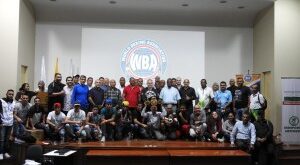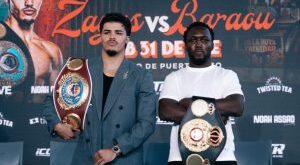Today, in our ongoing effort to revive the legacy of boxing’s early giants for veteran fans and introduce new generations to the sport’s legendary figures, we spotlight Bob Fitzsimmons — the first man in boxing history to capture world titles in three separate weight divisions. While multi-division champions are commonplace today, back in the late 19th and early 20th centuries, Fitzsimmons’ achievement was nothing short of revolutionary.
Known as “The Freckled Wonder,” Fitzsimmons also holds the distinction of being the lightest man ever to wear the heavyweight crown. He was born Robert James Fitzsimmons on May 26, 1863, in Helston, Cornwall, England, and passed away 54 years later in Chicago. On June 26 of this year, we commemorate the 162nd anniversary of his birth — a perfect moment to honor his legacy.
Fitzsimmons began his journey in New Zealand, where he won the national amateur middleweight title in 1880 — knocking out four opponents in a single night. He turned pro shortly after, and by 1891, he had already claimed the world middleweight title, his natural weight class. Rarely tipping the scales above the 160-pound limit (72.58 kg), he was a master of timing, precision, and raw punching power.
His historic heavyweight run began on March 17, 1897, when he stepped into the ring in Carson City, Nevada, to face reigning champion James J. Corbett, also known as “Gentleman Jim.” Despite being outweighed by nearly 17 pounds (Corbett came in at 184 lbs to Fitzsimmons’ 167), Fitz stunned the crowd with a 14th-round knockout — a liver shot so perfectly placed that Corbett collapsed and couldn’t beat the count. It was the first time a middleweight had ever conquered boxing’s top division.
That bout was notable for more than just the upset: it was also the first world title fight ever captured on film, and it premiered that July at New York’s Music Academy to a packed, exhilarated audience.
Fitzsimmons had a colorful and fearless approach to fighting. He famously joked, “The bigger they are, the louder they fall,” a nod to his affinity for taking on larger opponents. He made his public ring debut in 1883 in Sydney, Australia, and after suffering a couple of early setbacks, built a fearsome resume of knockouts that earned him a shot in the booming American boxing scene.
He made his U.S. debut on May 17, 1890, with a first-round KO over Frank Allen in San Francisco. What followed was an astonishing streak: 32 consecutive knockouts, including the win over “Nonpareil” Jack Dempsey (no relation to the later heavyweight legend), which earned him the middleweight title.
Fitzsimmons would lose his heavyweight crown in 1899 to James J. Jeffries, who outweighed him by a staggering 52 pounds (219 to 167). Despite the physical disadvantage, Fitz put up a valiant effort, and the two would meet again in 1902 — Jeffries again emerging victorious.
But Fitz wasn’t finished. At age 40, on November 25, 1903, he made history once more by winning the light heavyweight title, defeating George Gardner by decision over 20 rounds. He remains one of the very few fighters to hold world titles at middleweight, heavyweight, and light heavyweight — a feat not replicated until many decades later.
He would fight on sporadically into his 50s, including a no-decision bout against Philadelphia Jack O’Brien and a knockout loss to Jack Johnson, the first Black heavyweight world champion, in 1907. His final professional bout came on February 20, 1914, a six-round no-decision against Jersey Bellew in Pennsylvania, at the age of 51.
Fitzsimmons ended his career with an official record that varies depending on the source — some credit him with 61 wins (57 KOs), 8 losses, 4 draws, while others list 46-8 with 39 KOs. Regardless of the numbers, his legacy is firmly etched in boxing history.
He was inducted into the inaugural class of the International Boxing Hall of Fame in 1954, and passed away on October 22, 1917, at the Michael Reese Hospital in Chicago, succumbing to pneumonia.
The Buffalo Enquirer eulogized him with poignant brevity:
“A cruel death struck a final blow to Bob Fitzsimmons in a Chicago hospital. The ‘Great Referee’ called Bob to his corner — and he never returned.”
Nat Fleischer, founder of The Ring magazine, once hailed Fitzsimmons as one of boxing’s most powerful punchers. And noted boxing historian Edgar Lee Masters summed him up best:
“In courage, power, skill, and fighting will, there has never been another quite like Fitz.”
A legend in every sense — and one of boxing’s original giants.
Source link
 Boxing News Boxing News
Boxing News Boxing News





